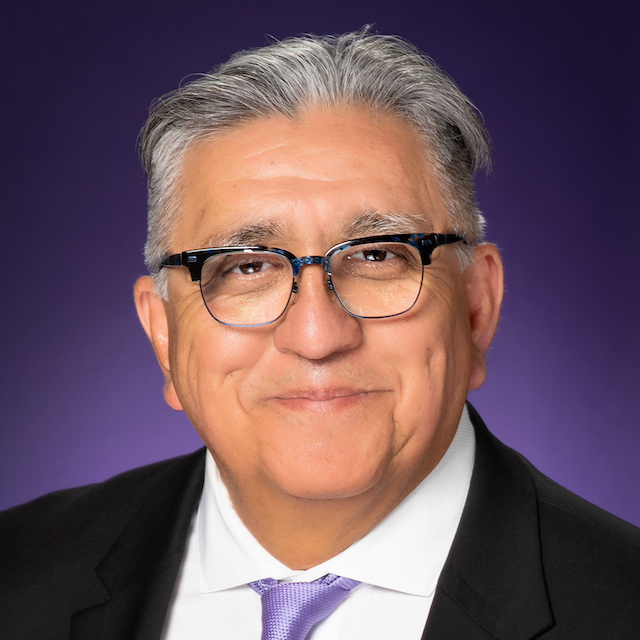 This election cycle, TCU is presenting a series of events titled Elections, Democracy
and Social Values. The series aims to explore various viewpoints and aspects of an
election and engage TCU’s diverse community in voting as informed, responsible citizens. The
final event, “Stakes are High! Why Your Vote Matters,” will focus on the meaning of
civic participation.
This election cycle, TCU is presenting a series of events titled Elections, Democracy
and Social Values. The series aims to explore various viewpoints and aspects of an
election and engage TCU’s diverse community in voting as informed, responsible citizens. The
final event, “Stakes are High! Why Your Vote Matters,” will focus on the meaning of
civic participation.
Jonathan Benjamin-Alvarado, TCU’s chief inclusion officer, spearheaded these events,
gathering TCU faculty and alumni to hold a variety of relevant conversations. Ahead
of the closing event, Benjamin-Alvarado answered a few questions for TCU News on the
importance of engaging.‚ÄØ‚ÄØ
First, we know, as citizens, that it is important to vote. Can you speak specifically
to why you feel it is important for college students to engage?
An element of being a good citizen is being aware of the obligation to support democracy
through the act of voting. Part of what we are trying to do here at TCU is advance
and inculcate “habits of citizenship.” Broadly speaking, this means we are here to
model what it looks like to be active, aware and engaged so that our students are
truly manifesting what it means to be an engaged citizen. There is a dearth of civics
education in America today, but consistent with our mission and values, we intentionally
step into the breach and want to bring to life so much of what students are already
being exposed to in the classroom.
The events at TCU have covered a range of topics related to elections and democracy.
Why did you select this format for addressing this year’s election cycle?
This has been the work of many knowledgeable hands. We wanted to speak directly to
topics that we know are salient in the lives of our students today and would be interesting
for them to learn more about. Social media and smartphones are a huge part of their
lives, and we know that both online gambling and misinformation/disinformation are
huge issues of concern for Gen Z. We wanted to speak to them on issues directly impacting
them and their peers and to link these topics to their impact on elections, voter
knowledge and democracy at large. Having two TCU alumni – Amber Phillips ’08 from
The Washington Post and Richard Escovedo ’16 from CBS Face the Nation – participate alongside our superstar faculty made these engagements even more meaningful.
These are not lectures but rather conversations. We have been very pleased with both
the student engagement and turnout thus far. Having important community partners (League
of Women Voters and March to the Polls) and a TCU civic engagement table so that students
could register to vote was also a plus.
What has been the biggest surprise from the series so far?
Students are participating enthusiastically. While I’m not surprised by our sharp
students, I’m pleased at their insightful and provocative questions. Their direct
engagement with the TCU alumni was very heartwarming. A pleasant surprise was how
willing both were to give off-the-cuff advice and establish contacts with our students
to continue the conversation. This is special because it happened organically, and
the students were happy that these working professionals took time with them and really
showed a depth of care for them and their future.  How do engagement opportunities like this – and even the general encouragement of
voting – fit into the larger construct of TCU’s mission and values?
How do engagement opportunities like this – and even the general encouragement of
voting – fit into the larger construct of TCU’s mission and values?
We were very intentional about focusing on the non-partisan element of political participation
and voter mobilization. Consistent with TCU’s mission and values, we want to imbue
the students with agency, energy and the motivation to act in shaping their political
lives. This institution is dedicated to advancing a diversity of viewpoints. That
hinges on the ability of students themselves to discern what they want from their
democratic society and who they want to represent them. This synthesizes the ideals
of “ethical leaders” and “engaged citizens” in a purposeful manner. I believe that
it also taps into an undercurrent that is the embodiment of the Horned Frog experience.
Students come here expecting there to be purpose and meaning in their education. The
Elections, Democracy and Social Values series is a modest effort to provide that for
our students, and I know that the many who played roles in this endeavor are happy
to abide.
Anything else you’d like to add?
I am a political scientist by training and will always be a bit of a nerd when it
comes to elections, so being a part of political socialization and democratic formation
is something very near to who I am. It is present in how I engage students and what
I want them to gain from the encounter. From that vantage point, this is what all
this work does. It gives hope for the future.
At the event Oct. 30, James Riddlesperger, political science professor, will engage Mary
Millben, a singer, actress and media personality in a conversation on why voting matters
and the role of young voters in the process. President Daniel W. Pullin will offer
closing remarks.
For more on Elections, Democracy and Social Values, read Betting on Democracy: Grant Ferguson Discusses Political Predictive Markets; Information, Misinformation and Disinformation: Kristie Bunton on Elections, AI; and Between ‘Not Perfect’ and ‘Excellent’: Evaluating American Elections with Jim Riddlesperger.
Jonathan Benjamin-Alvarado Discusses ‘Why Your Vote Matters’
Tag IconAcademics